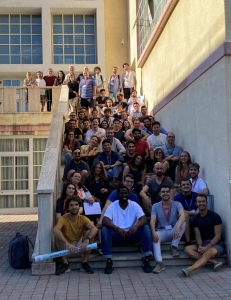 From the 4th to the 8th of July 2022, the first edition of the “AI & Society Summer School”, organized by the Italian National Ph.D. program in Artificial Intelligence, PhD-AI.it, took place at the University of Pisa. The summer school consisted of lectures, panels, poster sessions, and project works. The aim was to advance the frontier of AI research with internationally renowned scientists and build a community for the next generation of AI researchers, innovators, and professionals. All ESRs, Tommaso Crepax, Mitisha Gaur, Robert Lee Poe, Qifan Yang, Maciej Krzysztof Zuziak in the Pisa group of LeADS participated in this summer school.
From the 4th to the 8th of July 2022, the first edition of the “AI & Society Summer School”, organized by the Italian National Ph.D. program in Artificial Intelligence, PhD-AI.it, took place at the University of Pisa. The summer school consisted of lectures, panels, poster sessions, and project works. The aim was to advance the frontier of AI research with internationally renowned scientists and build a community for the next generation of AI researchers, innovators, and professionals. All ESRs, Tommaso Crepax, Mitisha Gaur, Robert Lee Poe, Qifan Yang, Maciej Krzysztof Zuziak in the Pisa group of LeADS participated in this summer school.
The welcome lectures were given by Prof. Dino Pedreschi, Prof. Marco Conti and Prof. Vincenzo Ambriola. After that, Prof. Alessio Malizia gave his lecture, “MiniCoDe – Minimise algorithmic bias in Collaborative Decision Making with Design”, and interacted with the participants on how to address bias in algorithms. After an hour-long poster session in the afternoon, Prof. Anna Monreale hosted a panel on “The Future of AI Research” with five women scientists – namely Prof. Francesca Chiaromonte, Prof. Rita Cucchiara, Prof. Fosca Giannotti, Prof. Michela Milano, Prof. Sara Tonelli – in different areas. The following lectures of the summer school covered social artificial intelligence, developmental robots for language learning, trust and theory of mind, human face recognition, deep learning theory, interdisciplinarity of data science and AI, etc.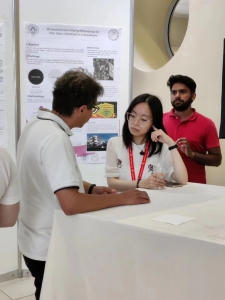
During the poster session, ESRs showed great poster presentations and introduced their works on “interplay between privacy protection and market competition in the digital revolution (Yang Qifan)”, “differential privacy and differential explainability in the data sphere” by Mitisha, “unchaining data portability potentials in a lawful digital economy” by Tommaso Crepax, “the distinction between fairness and bias by Robert Lee Poe, and “use of distributed personal data management for personalization of digital services by Maciej Krzysztof Zuziak. All ESRs had active discussions with the participating scholars.
On the last day, ESRs presented their project works from their groups, involving “reducing polarization in social media through diffusion models” by Qifan Yang, “polarization detection via the semantic network” by Mitisha Gaur, “a smart mobility platform to improve urban air quality” by Tommaso Crepax, “a multi-way explainable interface for high-risk public use applications by Robert Lee Poe and “continual active learning for healthcare” by Maciej Krzysztof Zuziak. The proposals from Tommaso’s group and Mitisha’s group won second and third prizes.
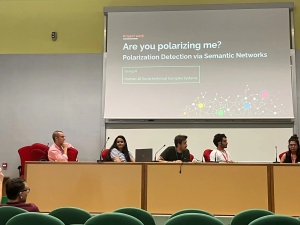
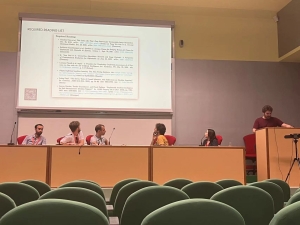
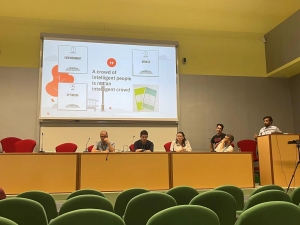
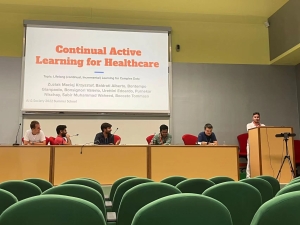




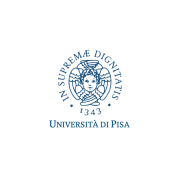
 From the 4th to the 8th of July 2022, the first edition of the
From the 4th to the 8th of July 2022, the first edition of the 





